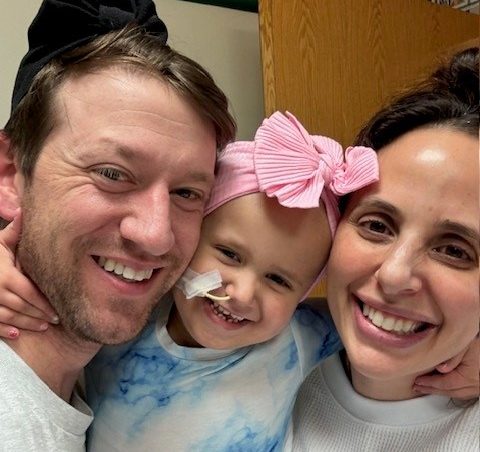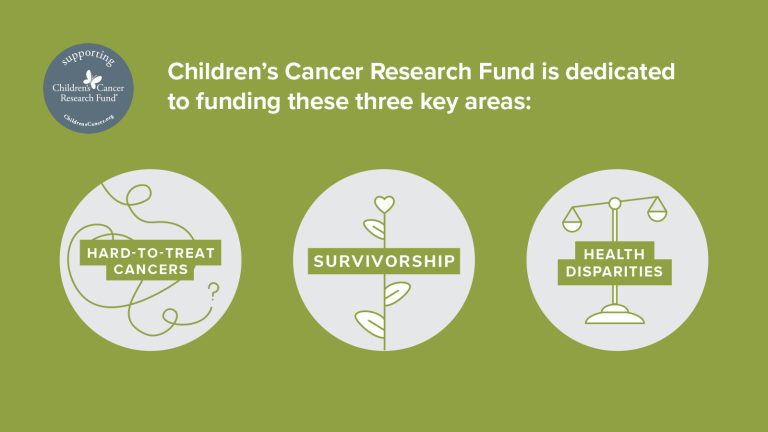You might think it strange that Allison cherishes the opportunity to watch her three-year-old daughter, Sloane, throw a tantrum. It’s something most parents would roll their eyes at – a little kid getting wildly upset over something silly. But for Allison, every typical toddler struggle is a reminder that right now, Sloane is healthy. And after what Sloane has been through, her family doesn’t take that for granted.
“A tantrum means she has energy,” Allison said. “It’s almost a sigh of relief because it means things are good right now. I feel robbed of the toddler years a little bit, so it makes it feel that much more special when she does typical toddler things, even if they’re hard things.”
The Beginning
In October 2022, Allison and Eric noticed during Sloane’s bathtime that her belly looked bloated. They thought it could be due to the iron and fiber supplements her pediatrician recommended after noticing her iron level was low. But she’d also been getting fevers here and there, so Eric took Sloane to the doctor on October 26. The doctor quickly sent her to the nearby children’s hospital – where she didn’t leave for 59 days.
Her official diagnosis was neuroblastoma, a type of cancer that starts in immature or developing nerve cells that’s most common in infants and young children. Sloane was thrown into intense treatment right away – shortly after diagnosis, she endured seven rounds of intense chemotherapy and had a 12-hour surgery to take out as much of the cancer as possible. During that surgery, the doctors also removed her kidney and adrenal gland. Her extended time in the hospital included three stays in the intensive care unit, radiation therapy and multiple rounds of chemotherapy. She’s endured more major medical challenges in her young life than most of the adults she knows, meaning she has more than earned the meaning behind her name – “Sloane” is an Irish name meaning “warrior.”
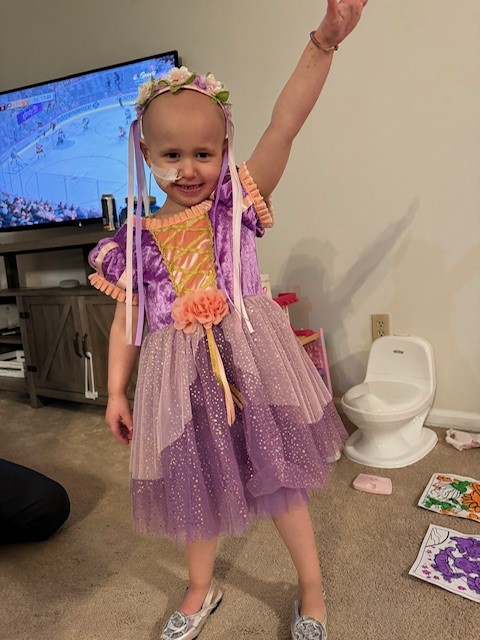
Sloane dancing in her Princess Rapunzel dress
“We didn’t know that until after she was diagnosed,” Allison said. “That’s not why we picked it, but it definitely fits.”
Her next step was to go undergo 12 rounds of immunotherapy treatment, which put her into what her doctor called “soft remission.”
Early in her treatment she became malnourished, partly because her cancer treatment killed her appetite, and partly because her cancer was straining her body so much that it was essentially “eating” all her nutrients. Today, Sloane has a nasogastric (NG) tube, a tube that is taped to her cheek and goes from her nose to her stomach, sfo she can get her medications easily, and to make sure she is getting enough nutrition and hydration. Sloane affectionately calls it her “tubey,” and she’s used to explaining it to curious friends who ask. It’s helpful to have an easy way to make sure Sloane gets her vital medications, but Allison says she’s excited for the day when Sloane won’t need her NG tube anymore.
“I can’t wait for the day when I can just kiss both of her cheeks without them having tape on them,” Allison said.
Because Sloane spent so much time in the hospital room from ages 2 to 3, hospital life just became her everyday experience – she expected to be there. Often, Allison says, she wouldn’t want to leave.
“Sometimes she even preferred the nurses over us because she was sick of us!” Allison said. “She honestly didn’t get upset at the hospital because we tried to make it as normal as we can.”
Uncertainty Amidst Hope
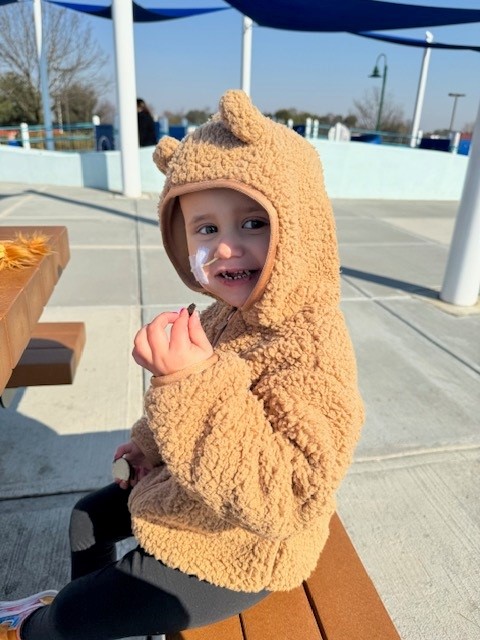
Sloane enjoying a snack at the park
Even when treatment is working and things are looking good for Sloane, Allison and Eric are too anxious to celebrate. They’re wary of “jinxing it” – they know how common relapses are for kids with neuroblastoma, and they’re afraid of having to put Sloane through even more than she’s already experienced.
“I posted something this October when it had been one year (since diagnosis) because I wanted everyone to know how awesome and strong she is, but I almost didn’t want to post that she was in remission because I didn’t want it to become untrue,” Allison said. “I don’t want people to stop thinking of her and praying for her and sending positive vibes. And I know it sounds crazy, but I didn’t want to post it and wake up and realize it wasn’t real.”
While this peace feels so tenuous, Allison and Eric are grateful for the support they’ve had from their care teams. Because neuroblastoma is so rare (just 600-1,000 cases diagnosed per year) it takes specialists collaborating across multiple hospital systems to ensure Sloane is getting the best kind of treatment specifically for her.
“I can’t stress enough how much of a gift it is to have the most brilliant minds coming together to make sure that my daughter is okay,” Allison said.
A Brighter Road Ahead
Even though Sloane’s treatment is working, and the long hospital stays and intense surgeries are hopefully behind her, her cancer journey is far from over. For most kids with neuroblastoma, treatment lasts for 18 months – and side-effects of treatment can last years, even decades. Because of the chemotherapy she received, Sloane’s immune system will likely never recover to 100% - meaning a minor virus or infection could turn major at any time.
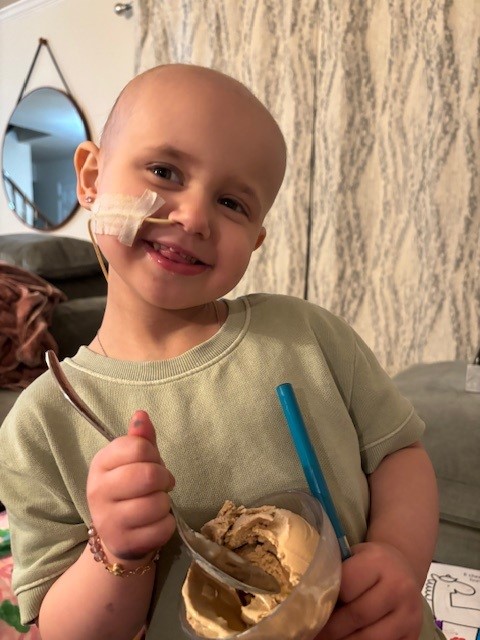
Sloane enjoying ice cream
“I hate that for the rest of my life, every time she gets a fever I’m going to go into a full-blown panic attack,” Allison says. “I guess you never stop worrying about your kid, but this is just on a completely different level than what other parents experience.”
Today, Sloane’s imaginative, creative personality is shining – she loves to color and paint, and she loves listening to country music – Luke Bryant and Taylor Swift are current favorites. Allison is grateful that Sloane may forget a lot of the more difficult parts of cancer treatment, since she’s still so young. But she wants to remind her daughter that what she’s been through has made her a warrior.
“I don’t think this will ever be truly over, but when this stage of it is done, I want Sloane to know how incredible she is,” Allison said. “I want to be able to tell her that she’s strong and brave.”

